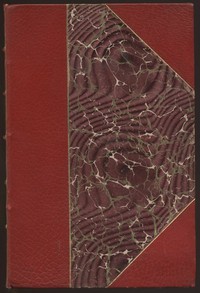Old Mortality, Complete by Walter Scott (christmas read aloud .txt) 📗

- Author: Walter Scott
Book online «Old Mortality, Complete by Walter Scott (christmas read aloud .txt) 📗». Author Walter Scott
In the meantime, the insurgent cavalry returned from the pursuit, jaded and worn out with their unwonted efforts, and the infantry assembled on the ground which they had won, fatigued with toil and hunger. Their success, however, was a cordial to every bosom, and seemed even to serve in the stead of food and refreshment. It was, indeed, much more brilliant than they durst have ventured to anticipate; for, with no great loss on their part, they had totally routed a regiment of picked men, commanded by the first officer in Scotland, and one whose very name had long been a terror to them. Their success seemed even to have upon their spirits the effect of a sudden and violent surprise, so much had their taking up arms been a measure of desperation rather than of hope. Their meeting was also casual, and they had hastily arranged themselves under such commanders as were remarkable for zeal and courage, without much respect to any other qualities. It followed, from this state of disorganization, that the whole army appeared at once to resolve itself into a general committee for considering what steps were to be taken in consequence of their success, and no opinion could be started so wild that it had not some favourers and advocates. Some proposed they should march to Glasgow, some to Hamilton, some to Edinburgh, some to London. Some were for sending a deputation of their number to London to convert Charles II. to a sense of the error of his ways; and others, less charitable, proposed either to call a new successor to the crown, or to declare Scotland a free republic. A free parliament of the nation, and a free assembly of the Kirk, were the objects of the more sensible and moderate of the party. In the meanwhile, a clamour arose among the soldiers for bread and other necessaries, and while all complained of hardship and hunger, none took the necessary measures to procure supplies. In short, the camp of the Covenanters, even in the very moment of success, seemed about to dissolve like a rope of sand, from want of the original principles of combination and union.
Burley, who had now returned from the pursuit, found his followers in this distracted state. With the ready talent of one accustomed to encounter exigences, he proposed, that one hundred of the freshest men should be drawn out for duty—that a small number of those who had hitherto acted as leaders, should constitute a committee of direction until officers should be regularly chosen—and that, to crown the victory, Gabriel Kettledrummle should be called upon to improve the providential success which they had obtained, by a word in season addressed to the army. He reckoned very much, and not without reason, on this last expedient, as a means of engaging the attention of the bulk of the insurgents, while he himself, and two or three of their leaders, held a private council of war, undisturbed by the discordant opinions, or senseless clamour, of the general body.
Kettledrummle more than answered the expectations of Burley. Two mortal hours did he preach at a breathing; and certainly no lungs, or doctrine, excepting his own, could have kept up, for so long a time, the attention of men in such precarious circumstances. But he possessed in perfection a sort of rude and familiar eloquence peculiar to the preachers of that period, which, though it would have been fastidiously rejected by an audience which possessed any portion of taste, was a cake of the right leaven for the palates of those whom he now addressed. His text was from the forty-ninth chapter of Isaiah, “Even the captives of the mighty shall be taken away, and the prey of the terrible shall be delivered: for I will contend with him that contendeth with thee, and I will save thy children.
“And I will feed them that oppress thee with their own flesh; and they





Comments (0)